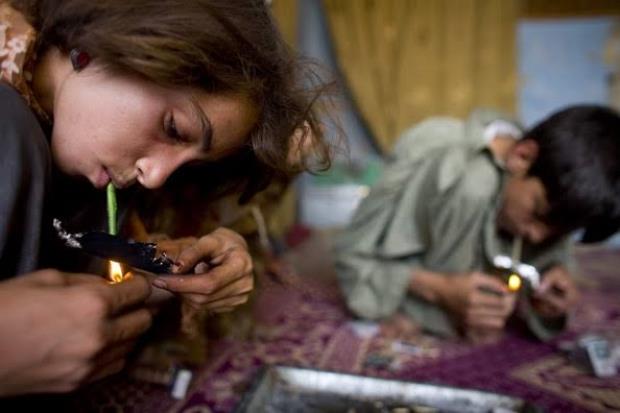By: Waqas Qamar Bhatti
The growing scourge of drug addiction among Pakistan’s youth is emerging as a silent killer, weakening both individual lives and the fabric of society. Like a storm that builds quietly before unleashing destruction, drug abuse is devastating young lives, dismantling their physical health, mental stability, and future prospects.
Physical Harm of Drugs:
Drug use initially gives the illusion of temporary joy and relaxation, but it quickly leads to serious health consequences. Addicts suffer from numerous diseases affecting the heart, liver, lungs, and brain. The body weakens over time, making even minor illnesses life-threatening. In addition to the long-term damage to health, drug users often experience rapid physical decline, losing strength and energy.
Mental and Emotional Impact:
Drug addiction severely affects mental health. Addicted individuals gradually lose the ability to think rationally, make sound decisions, and engage with the world around them. The emotional toll of addiction isolates them from their responsibilities, leaving them detached and disconnected from society. In many cases, this emotional breakdown leads to feelings of hopelessness, and in extreme instances, individuals may contemplate suicide.
Societal Consequences:
The impact of drug abuse extends beyond individuals, threatening entire communities. Addicted youths often turn to theft, robbery, and other illegal activities to sustain their drug habits, creating fear and insecurity within society. Families, torn apart by addiction, are left struggling to help their children escape this downward spiral.
Educational Abandonment:
Drug addiction is a significant reason for the decline in education among young people in Pakistan. Addicted youth often abandon their studies as their focus shifts entirely toward obtaining drugs. With their dreams and ambitions sidelined, these individuals miss out on educational opportunities that could have paved the way for brighter futures.
Solutions to Combat Drug Addiction:
The fight against drug abuse requires collective action. It is not just the responsibility of the government but also of society as a whole. A multifaceted approach is needed to address this pressing issue.
1. Raising Awareness: Public awareness campaigns about the harmful effects of drugs should be conducted in schools, colleges, and universities. Young people must be educated about the risks and long-term consequences of drug addiction.
2. Rehabilitation Centers: The government should establish more rehabilitation centers, offering both medical and psychological support for addicts, helping them regain control of their lives.
3. Stricter Law Enforcement: There is a need for stricter enforcement of laws targeting drug dealers and their networks. Preventing drugs from reaching young people should be a top priority for law enforcement agencies.
4. Positive Engagement: Encouraging youth to participate in positive activities like sports, cultural events, and creative pursuits can provide an outlet for their energy, steering them away from drugs.
5. Educational Reforms: Strengthening the education system with an emphasis on the dangers of drug abuse is critical. Schools should incorporate counseling systems, allowing students to seek help for personal problems before they turn to harmful substances.
6. Institutional Responsibility: Both governmental and non-governmental institutions must take strong actions against the spread of drugs. Law enforcement agencies, particularly the police and anti-narcotics forces, should intensify efforts against drug traffickers, while special monitoring teams should be deployed in educational institutions to address drug-related cases.
7. Parental Role: Parents play a vital role in preventing drug abuse. They should maintain open communication with their children, educating them about the risks of drugs and the importance of education.
The drug addiction is not just a personal tragedy but a societal crisis, eroding communities and destroying futures. If Pakistan hopes to protect its youth from this menace, immediate and effective action must be taken. The fight against drugs requires a unified effort from all sectors of society, including the government, educational institutions, law enforcement, families, and community leaders.
Education and awareness are key to breaking the cycle of addiction. By steering youth toward positive pursuits and equipping them with the skills to navigate life’s challenges, Pakistan can create a future where young people are empowered to reach their full potential, free from the shackles of addiction.
The battle will not be won overnight, but with sustained efforts and a shared commitment, Pakistan can safeguard the next generation from the destructive grip of drugs, allowing them to lead the nation toward a brighter, healthier, and more prosperous future.


